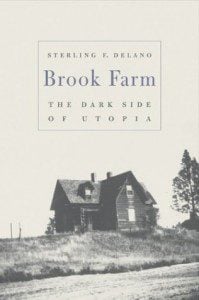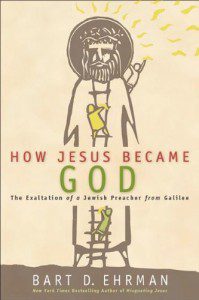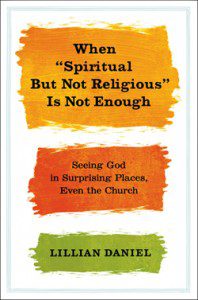I recently had the opportunity to visit The Martin Luther King, Jr. Memorial on the National Mall. It has been said that, “tourists pass through a place, but pilgrims allow a place to pass through them.” The site is gloriously located on the edge of the tidal basin, halfway between the Jefferson and Lincoln memorials, and I sought to pass through our capital latest’s memorial in a spirit of pilgrimage.
I paused to savor each of the fourteen quotations on the Inscription Wall:
- “We shall overcome because the arc of the moral universe is long, but it bends towards justice.”
- “Darkness cannot drive out darkness, only light can do that. Hate cannot drive out hate, only love can do that.”
- “I believe that unarmed truth and unconditional love will have the final word in reality. This is why right, temporarily defeated, is stronger than evil triumphant.”
- “Make a career of humanity. Commit yourself to the noble struggle for equal rights. You will make a greater person of yourself, a greater nation of your country, and a finer world to live in.”
- “I oppose the war in Vietnam because I love America. I speak out against it not in anger but with anxiety and sorrow in my heart, and above all with a passionate desire to see our beloved country stand as a moral example of the world.”
- “If we are to have peace on earth, our loyalties must become ecumenical rather than sectional. Our loyalties must transcend our race, our tribe,our class, and our nation; and this means we must develop a world perspective.”
- “Injustice anywhere is a threat to justice everywhere. We are caught in an inescapable network of mutuality, tied in a single garment of destiny. Whatever affects one directly, affects all indirectly.”
- “I have the audacity to believe that peoples everywhere can have three meals a day for their bodies, education and culture for their minds, and dignity, equality and freedom for their spirits.”
- “It is not enough to say ‘We must not wage war.’ It is necessary to love peace and sacrifice for it. We must concentrate not merely on the negative expulsion of war, but on the positive affirmation of peace.”
- “The ultimate measure of a man is not where he stands in moments of comfort and convenience, but where he stands at times of challenge and controversy.”
- “Every nation must now develop an overriding loyalty to mankind as a whole in order to preserve the best in their individual societies.”
- “We are determined here in Montgomery to work and fight until ‘justice runs down like water, and righteousness like a mighty stream.'”
- “We must come to see that the end we seek is a society at peace with itself, a society that can live with its conscience.”
- “True peace is not merely the absence of tension: it is the presence of justice.”
As I reflected on these quotations, a thought floated forcefully to the surface of my mind: “If only we would turn his prophetic words into deeds.” Then I remembered a quotation from Jesus in Matthew’s thirteenth chapter:
15 For this people’s heart has grown dull, and their ears are hard of hearing, and they have shut their eyes; so that they might not look with their eyes, and listen with their ears, and understand with their heart and turn— and I would heal them.’ 16 But blessed are your eyes, for they see, and your ears, for they hear. 17 Truly I tell you, many prophets and righteous people longed to see what you see, but did not see it, and to hear what you hear, but did not hear it.
One of the most important books I read in seminary was A Testament of Hope: The Essential Writings and Speeches of Martin Luther King, Jr., and part of me wonders — particularly for churches in The United States in the early twenty-first century — if we would benefit from adding a lectionary reading to worship each week from Martin Luther King, Jr.’s writings. We Christians — especially pastors — spend so much time translating ancient biblical passages to make them applicable for today. But MLK’s words need little updating, and remain devastatingly relevant.
I’m aware of the Pandora’s Box that an “open canon” would mean, but I, nevertheless, find compelling the argument that some Civil Rights leaders proposed of adding Martin Luther King, Jr’s “A Letter from the Birmingham Jail” to the Bible as equally (or more!) worthy of canonization as the letters of the apostle Paul (some of which were also written from jail!).
Which of the fourteen memorial quotes resonated most with you? How is God speaking to you today through the blessed memory of The Rev. Dr. Martin Luther King, Jr.?
Currently, I resonate most strongly with MLK’s words that, “I have the audacity to believe that peoples everywhere can have three meals a day for their bodies, education and culture for their minds, and dignity, equality and freedom for their spirits.” This saying seems auspicious in these days of the Arab Spring and the Occupy protests.
I welcome a continued conversation in the comments section.
Previous Posts on Martin Luther King, Jr.
- Carl Gregg, “New Governor Gets MLK Exactly Wrong” (Jan 19, 2011): “The best favor anyone could do for Bentley and for the state of Alabama is to buy him a copy of A Testament of Hope: The Essential Writings and Speeches of Martin Luther King, Jr. and not let him out of the governor’s mansion until he’s read it.” Available at http://www.patheos.com/blogs/carlgregg/2011/01/new-gov-gets-mlk-exactly-wrong/.
- Carl Gregg, “On What Facts Are Your Opinions of MLK Based?” (Jan 16, 2011): “Don’t take take my word for it, and please don’t allow Dr. King’s memory to be remembered only through the Pentagon’s lens. Take the time to hear Dr. King’s word afresh for yourself.” Available at http://www.patheos.com/blogs/carlgregg/2011/01/mlk-listen-again-to-his-prophetic-words/.
For Further Reading
- Kirk Savage, Monument Wars: Washington, D.C., the National Mall, and the Transformation of the Memorial Landscape (2009).
The Rev. Carl Gregg is the pastor of Broadview Church in Chesapeake Beach, Maryland.
Follow him on Facebook (facebook.com/carlgregg) and Twitter (@carlgregg).












